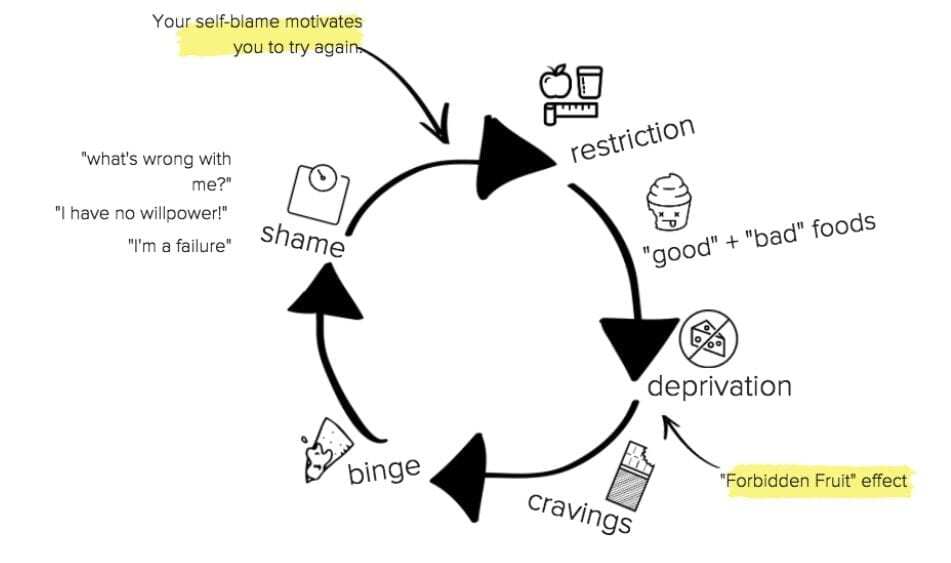Apps to keep track of what you eat are all the rage these days.
These apps can be great however they all have one tremendous shortfall.
Nobody sticks with these apps long-term!
You track for a week, a month, or heck … even a year but going that long is pretty rare …
And then you get bored.
This boredom will occur – so here is the best tip to squeeze the most juice of the apps to keep track of what you eat

First, let’s explore why we get bored – because monkeys don’t track their food.
This might sound silly, but it’s soooooo important.
Tracking calories or points is a logical, left brain behavior.
And we didn’t evolve our left brains until relatively recently.
So for millions of years, monkeys didn’t use LOGIC to track food.
They just ate food.
Just imagine a monkey having to track all of his/her calories.
Do you think this monkey would get incredibly bored? Yes, of course.
We need to embrace this truth, that we are going to get bored of food tracking and stop food tracking.
The simple answer is because we weren’t designed from an evolutionary perspective to track food.
So … don’t call yourself lazy. Don’t think you lack discipline. It’s perfectly natural to get bored of using apps to keep track of what you eat.

But wait … doesn’t science back using food tracking apps?
So yes. This is one of the rare times you’ll see me going against the broader mainstream of science.
Because science does show that food tracking works. And science is right! Food journaling can be a great activity.
The problem is, most of these studies are only measured for 1 year.
So you could track food for 1 year and the study will show, correctly, that you lose weight via food journaling.
But let’s say you stop food journaling after 1 year. Then what? You have nothing to go on.
The weight comes back. I’ve heard people describe this pattern many times before! As a San Jose Eating Disorder therapist, this story is not all together infrequent.
And oftentimes, if I ask people, about food journaling, some of them will talk about how it’s backed by science. But the key is realizing…
The real science would not count that because it’s after 1 year. It’s just not being measured.
And that’s why food journaling is not the long-term solution for you.
That’s why we must also track emotional and biological behaviors as well, so that we learn while we track

What if we tracked how we felt?
And how about if we tracked our emotions before, during, and after we ate?
Oh, and what if we tracked how hungry we were before the meal? And how full we were after the meal?
I know this would mean you would have to track a lot more …
But perhaps you wouldn’t.
Let’s be real here. After a couple weeks of tracking food, you get it. That’s why you get bored and stop tracking.
What if when you got bored of tracking calories and food, you switched to tracking another aspect like:
- hunger and fullness
- taste and joy
- emotional states beforehand (so you could learn what triggered you)
- How you felt after you ate (to learn what foods you emotionally like)
- Lessons you learned from binge eating (not enough sleep?)
What if we switched what we tracked, so we kept learning about the different aspects of health instead of rigidly focusing on calories.
This way you can stay fresh …
What are your thoughts?



